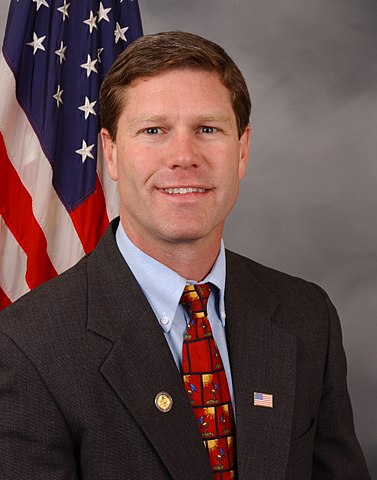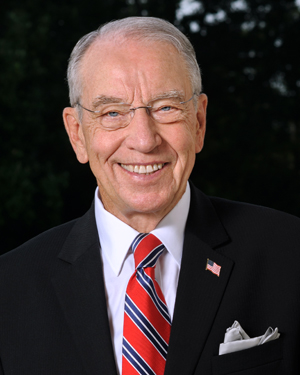Tumultuous U.S. talks with Mexico and Canada to rewrite a 24-year-old North American trade pact ended more than two months ago, but now President Donald Trump faces what could be an even more daunting task: negotiating with Congress.
The Trump administration may be able to convince enough lawmakers to support the U.S.-Mexico-Canada Agreement, but both Democrats and Republicans in the House and Senate have substantial concerns about the deal. Trump used his State of the Union speech Tuesday night to call on Congress to ratify USMCA, but negotiations have yet to truly begin, says Rep. Kevin Brady, the top Republican on the House Ways and Means Committee.
“We are beginning the process for educating and briefing members on the agreement — getting their feedback," Brady said last week at a Washington International Trade Association event. “The short answer is it should be approved because it has some really solid wins for us. … Are there some areas where members have raised concerns? Yes.”
U.S. Trade Representative Robert Lighthizer, amid a crowded schedule of bilateral negotiations with Japan, the U.K., the European Union and efforts to end a trade war with China, has been meeting in recent weeks with influential lawmakers like Brady, House Agriculture Committee Chairman Collin Peterson, D-Minn., and Rep. Ron Kind, D-Wis. But that interaction has to go deeper, Ways and Means Chairman Richard Neal, D-Mass., told reporters last Thursday.
House Democrats want to know what Lighthizer and Trump are willing to give them to “alleviate some of the tensions” they have over issues like enforcement of labor and environmental provisions in USMCA.
“We’re going to have the USTR up here so we can get some idea of what he’s thinking about these things,” Neal said.
Democrats are generally pleased over the addition of new labor protections in USMCA that are supposed to push up autoworkers’ wages in all three countries as well as give Mexican union members access to collective bargaining that is independent from historically government-run negotiations.
A primary concern of Democrats is that the new provisions, including a mandate that 40-45 percent of cars be produced by workers making a minimum of $16 per hour, won’t be uniformly enforced.
“I think there’s been improvement as far as labor standards are concerned, but it does come back to enforceability and whether there’s any teeth behind those standards,” Kind said.

Rep. Ron Kind, D-Wis.
But Democrats won’t just be looking to the Trump administration for reassurance. They’ll also be looking for direction to House Speaker Nancy Pelosi, who remains embattled with Trump over his demand for a border wall and uncommitted on USMCA.
“It’s just a list without real enforcement of the labor and environmental positions,” Pelosi said of the deal in December.
But Brady insists the Trump administration is sincere in its desire to appease Democrats.
“What will Democrat demands be on the enforcement?” he said. “What does that look like? I think Ambassador Lighthizer is eager to see what that to-do list is to figure out how he can accommodate them, if at all. And he’s sincere about doing that.”
One House Democrat, Oregon's Kurt Schrader, warns that the trade deal won't pass easily.
“I don’t think it’s going to sail through,” he told Agri-Pulse. “I’m curious to see what rhetoric they use to make it seem like it’s better than what we’ve got now.”
Democrats will also be looking to the unions and one of the biggest — the International Brotherhood of Teamsters — is still not committed to a position on USMCA. Last year, Teamsters General President Jim Hoffa said he wasn’t prepared to either support or oppose the pact and that’s still the case, a spokesman told Agri-Pulse.
But Peterson tells Agri-Pulse that he is hearing nothing but optimism from the administration.
“I had lunch with Lighthizer. … He said they’re working on putting the votes together,” Peterson said. “He claims some (unions) are going to come out and support (USMCA).”
And while Democratic concerns have been some of the most visible obstacles to USMCA passage, Republican criticisms may be some of the most potent, says Senate Finance Committee Chairman Chuck Grassley.

Senate Finance Committee Chair Chuck Grassley, R-Iowa
While Democratic concerns about beefing up enforcement of labor and environment provisions can be addressed in side letters or annexes to USMCA, some Republicans are demanding significant changes in the way that all three countries solve trade disputes through arbitration, Grassley said.
In a major win for Canada, the U.S. and Mexico essentially agreed to scrap the northernmost country’s need to provide an investor-state dispute settlement (ISDS) mechanism for U.S. and Mexican companies doing business there. The mechanism did survive, though in a weaker form, to encourage foreign investment between Mexico and the U.S.
“By limiting ISDS to this narrow list of sectors, the USMCA is determining which types of investment are allowed to succeed in Mexico and which are not,” reads a recently released analysis by the conservative Heritage Foundation, which supports a strong ISDS. “A neutral and independent ISDS arbitration process ensures that Americans are guaranteed fair treatment, an especially important consideration for investments in developing countries.”
Restoring ISDS to the full strength it has in the current North American Free Trade Agreement would essentially require going back to square one with both Canada and Mexico, Grassley said.
“That would force renegotiation and this administration is not going to renegotiate,” the Iowa Republican stressed.
Another major hurdle is the extremely unpopular fact that the Trump administration has not yet agreed to scrap its steel and aluminum taxes on Mexico and Canada. At first the two countries were exempted from the “Section 232” tariffs when they were levied globally last year because of the intense negotiations to rewrite NAFTA.
Those exemptions expired when the talks stalled and Canada and Mexico retaliated quickly with their own import taxes that targeted U.S. farm commodities.
“One of the key things in my discussions with members — Republicans and Democrats — is that they are not willing to consider this agreement until the steel and aluminum tariffs are ensured to be lifted,” Brady said. “These are fair trading partners, trading fairly in those metals, so I think that’s going to be one of those threshold issues.”
Grassley is in agreement, but took his opposition to the 232 tariffs even further, saying he would not introduce the USMCA implementing legislation on the Senate floor unless the Trump administration scraps the import taxes.
“That’s what I’ve said,” he told reporters. “That’s not a threat. That’s just a practical way to get things done around here.”
For more news, go to www.Agri-Pulse.com


